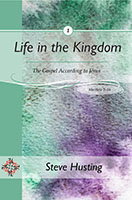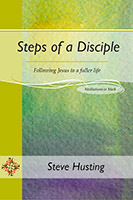We who are involved in the work of the Lord can fall into the terrible sin of pride. This was not a problem limited to the Pharisees. It is not a religious problem but a human being problem, because hypocrisy appears everywhere people do, not just in religious institutions.
The prideful try to make themselves a cut above, often by elevating themselves above others. The Pharisees prayed in public to gain the admiration of men (Matt. 23:5). They wore larger sleeves (phylacteries) to stand out among their peers. The proud are motivated to promote themselves, to gain recognition, in all that they do.
Jesus rebuked the Pharisees for their pride repeatedly. As we see by their condemning Him to death, the proud do not take take correction well! Especially from their “inferiors.” Jesus was just an itinerant rabbi to them. He didn’t belong to their club. They scoffed, “Who does He think He is?”
Pride is inherently evil, crafty, subtle, and destructive. It is totally against the new wine of grace Jesus brings in where we confess Christ is Lord. (With the proud, self is lord.) Jesus was humble and obedient to the Father and pleased Him in all things. But pride puts self at the center. Pride will use religious works, not to draw people to God, but to itself. Pride will use whatever tools are at hand in their industry–in medicine, government, science, business, education, and more.
When the Spirit works, He reproduces His own character in those He indwells. Prideful people, as we see in Matt. 23:15, will only reproduce demonic copies of themselves in others. They will be antagonistic to the gospel, in which one rests on the grace of God for everything, including one’s self-worth. Their teaching and attitude will beget arrogant monsters and not those who approach the Word with, “Speak, Lord, Your servant is listening.”
Paul gives us the blunt truth to become truly wise in the things of God. “Let no one deceive himself. If anyone among you seems to be wise in this age, let him become a fool that he may become wise” (1 Cor. 3:18). We can be fooled by our own pride; it is difficult to detect pride in oneself when seeking recognition feels so normal, and spinning something to put self in the best light is instinctual.
Paul’s remedy is to become like the foolish; that is, to be like those around you. What do I mean by that? When we associate with the humble and simple, we’ll see the difference between their plain talk and living, and our prideful ambitions. The contrast, with the illumination of the Spirit, can help us to see it. When we identify with the humble, we are actively putting to death the pride of life. The humble already put God first and will discern the puffery of fools.
Paul is not advocating devaluing your person or gifts or talents as though you were a dumb oaf who can’t do anything right. I don’t think that’s what he means by “foolish” here, though the literal meaning is to be foolish, dull, or stupid. The prideful will denigrate others to lift themselves. Our cure, as Paul says, is to be like them, at their level.
So be watchful against saying or doing things that elevate yourself above others. One of the ways we might foolishly elevate ourselves is by talking about our grand experiences, whether of something we did or what the Lord has been doing. We tend to make it about ourselves. We are saying, “I must be someone special for the Lord to have used me like this.”
Our hearts are deceitful in other ways. We may ask someone else how they are doing, but the question is only a preface to bring up our own accomplishments, where we may boast. To be one of the “foolish,” pay attention to their response and get more details. Respond with congratulations as anyone would who cared for the one we’re talking to. Let that person shine. Put on Christ’s compassion.
If you are a teacher or pastor, you might use illustrations from the lives of others and not yourself. Use illustrations from the Bible, for example. The humble will use illustrations to show people how weak they are and dependent on the Lord. Paul did this when he said that the brethren lowered him down the wall in a basket to save him from soldiers waiting to seize him (2 Cor. 11:30-33). He boasted of being humble by pointing out his helplessness and need.
When we recognize an aspect of pride in us, we can be on the lookout for it. When it appears again, we die to it, crucifying the flesh. The cross takes center stage and we apply it with no sympathy. We reckon that aspect of the old us before Christ as dead and buried, and the new creation as alive to God in Christ.
This we do day by day, and the Spirit will give life and strength to this work. If we don’t know who Christ is (if we only know about Him), we can’t see any difference between who we are and whom we may become (2 Cor. 3:18). We won’t know where to apply the cross. We won’t know how to imitate Him who is “gentle and lowly in heart” (Matt. 11:26-28)
Another way to cut off the sin of pride is to stop comparing yourself with others, which the prideful do by aligning themselves with someone they think has some importance. The men of Corinth were saying they were of Paul or Apollos (1 Cor. 3:4), as though the mere acquaintance with them were enough to make them special. See the silliness of pride?
When you talk to others, such as pastors or other leaders, about your work, you can mention this weakness to them and ask them to let you know it when they see it. Still, the craftiness of pride knows no end, and some pitfalls are hidden in plain sight.
Make yourself foolish. Don’t align with anyone of repute but choose to work and associate with the lowly. Use your time and abilities to benefit them. Work with children, elderly, and the disadvantaged. Beware of the humblebrag.
See yourself as God sees you and your situation. “Do you not know that you are the temple of God and that the Spirit of God dwells in you?” (1 Cor. 3:16.) He who dwells in the high and holy place desires to dwell in the humble and contrite ones (Isa. 57:15). So there is no better position in which to find yourself.
Those afflicted with pride want to appear wise, but they overreach because they are starting from the wrong position. We need to build on the foundation of Christ (1 Cor. 3:11). Do you realize that He is able to give you all things, just because you are aligned with Him and His family? You are already immeasurably blessed with the Spirit within. Those blessings will open up to you when you approach life from humility and gratitude.
This thought ties in with the admonition to not boast in our wisdom, strength, or riches (in which we tend to gloat), but let him who boasts, boast in the Lord, that he knows Him (Jer. 9:23-24). Our alliance and union with Him should be reflected in all our conduct and work.
“Therefore let no one boast in men. For all things are yours: whether Paul or Apollos or Cephas, or the world or life or death, or things present or things to come—all are yours. And you are Christ’s, and Christ is God’s” (1 Cor. 3:21-23). The prideful want a higher station than they deserve–they have been bitten by the Lucifer Bug. No one deserves the blessings God gives us as gifts given through Christ. Every good thing comes from God above.
Remember who you are in Christ. The Lord has already given us His righteous standing as a free gift. We cannot rise higher than the stature of Christ. We could never attain that stature on our own merits, otherwise Christ would not need to have died.
When we think of elevating ourselves, we dishonor the Lord, who humbled Himself to be a servant of men. “The Lord knows the thoughts of the wise, that they are futile” (1 Cor. 3:20). It is foolish to make yourself something you’re not. It is enough to serve and not be served. It was enough for the Lord, who is the Truth, so imitate the truth. We who are proud want to be free, and this truth of the saving merits of Christ will set us free.
It is foolish to think that you are a better person merely because you align yourself with another man’s accomplishments, especially when your own accomplishments are meager. This is foolish thinking because the Lord has bought you with His own blood. We were made to identify with Him not others (1 Cor. 3:5-9).
When we look to the east and west for promotion, we forget Him who has already lavished a love on us so great and deep that it surpasses all that mankind could give. What will you give in exchange for your soul? The mere hand-claps of men? How shallow we can be!
In Christ, we have been seated in the heavenly places at the right hand of God. We can’t top that by any work we do. It is foolish, oafish, vain, silly, and truly dumb to even think of doing so when we enjoy a humble communion with the Almighty.
This is a spiritual problem that demands a spiritual remedy. Humble yourself in the sight of the Lord with these scriptural insights and He will lift you up.






